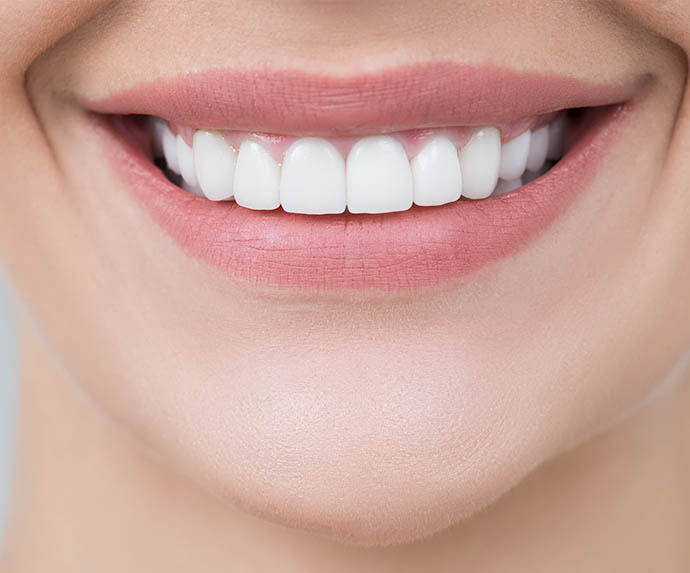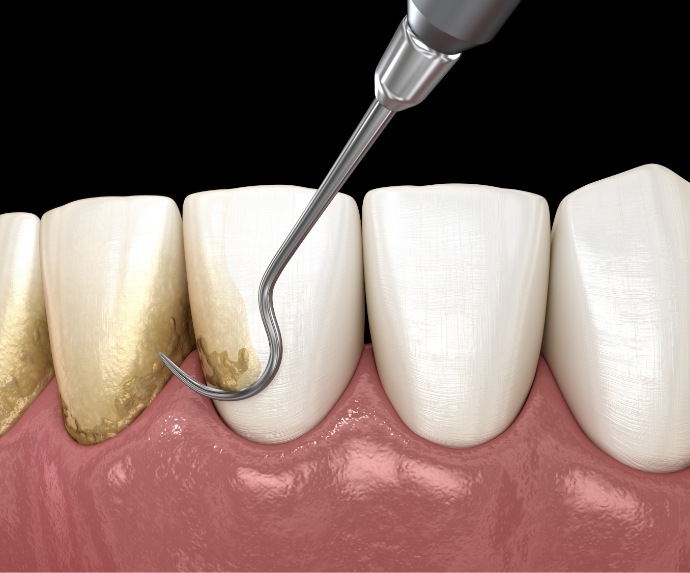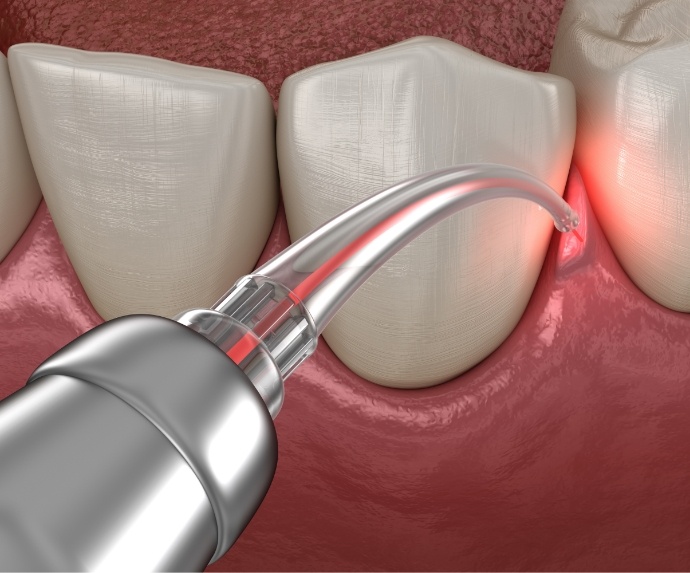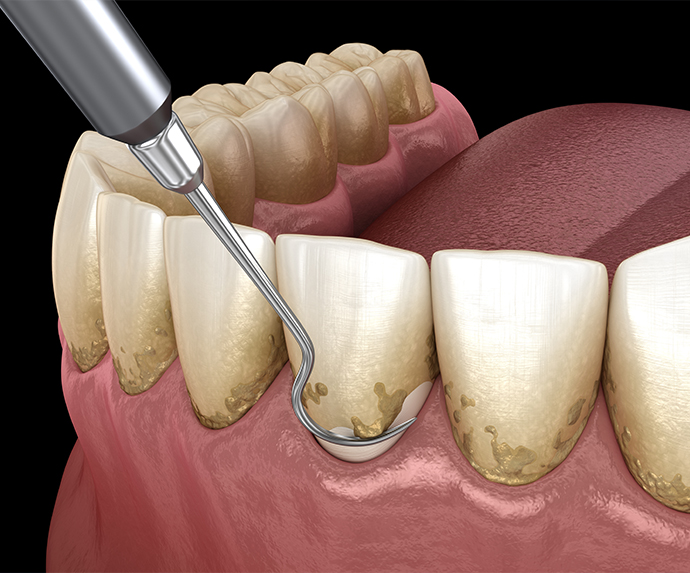Gum Disease Treatment Arlington
Ward Off Gum Disease with Effective Treatment

Periodontal disease, commonly referred to as gum disease, effects more than 50% of US adults over 30. Gum disease occurs when bacteria lives below the gum line. In the early stages, gingivitis, patients will likely only have mild symptoms, such as bleeding after brushing or flossing teeth. In this stage, more frequent professional teeth cleanings and good at-home care can help reverse your symptoms. However, when left untreated, advanced gum disease may require more extensive treatment. Contact us right away if you believe you need gum disease treatment in Arlington.
Why Choose James T. Gray, DDS for Gum Disease Treatment?
- Effective & Precise Soft Tissue Laser Therapy
- Dentist with 30+ Years of Experience
- Warm, Welcoming & Locally-Owned Practice
Scaling & Root Planing

The first phase of treatment for patients with advanced gum disease is a combination of two procedures, scaling and root planing. Scaling is the systematic removal of plaque and tartar buildup. Root planing is the smoothing of tooth roots to prevent future plaque buildup by removing the crevices in the root’s service where plaque and tartar can attach to teeth. These are comfortable, non-surgical procedures typically completed with only local anesthesia. We’ve further improved the comfort of these treatments by incorporating soft tissue laser dentistry into our practice.
Soft Tissue Laser

In addition to the traditional manual methods of removing plaque and smoothing tooth roots, our team often recommends periodontal therapy using a soft tissue laser. Our state-of-the-art laser allows us to decontaminate the pockets that form between teeth and gums without further irritating soft tissue. This minimizes bleeding and discomfort during and after treatment and accelerates the healing process.
Periodontal Maintenance

After a patient has been diagnosed and treated for gum disease, we will recommend that they visit our office every three to four months for periodontal maintenance. This service is essentially a dental cleaning that focuses on keeping the tartar buildup and bacteria under control. It can help improve the health of the gums over the long term.
